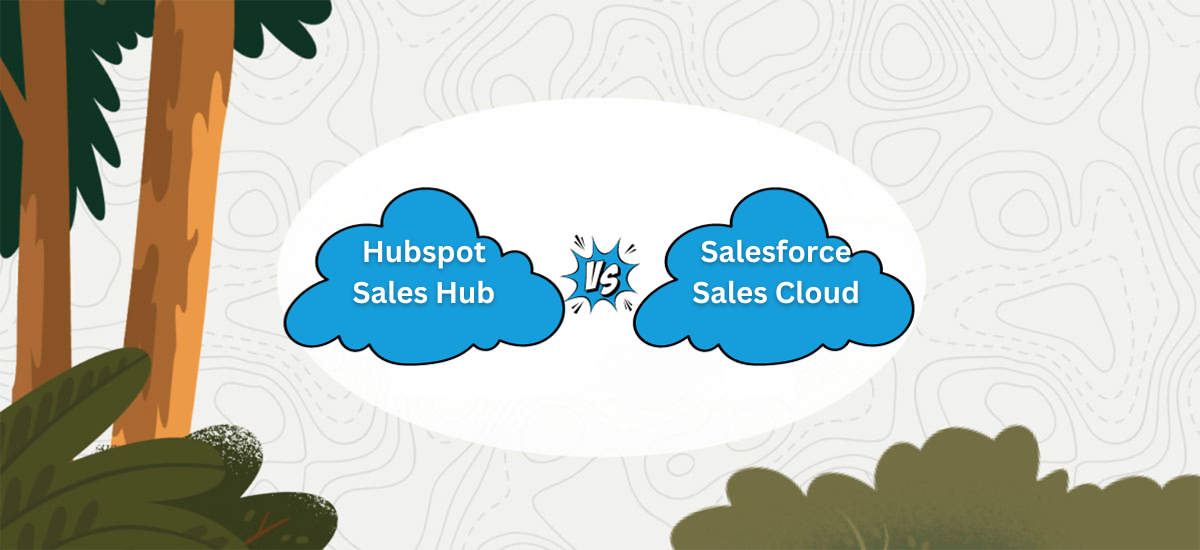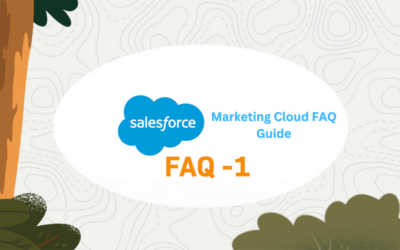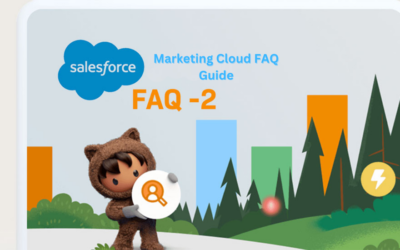In the dynamic world of Customer Relationship Management (CRM) and sales automation, the choice between two industry giants, HubSpot Sales Hub, and Salesforce Sales Cloud, stands as a critical decision for businesses seeking to optimize their sales processes. These two comprehensive solutions, while sharing some common objectives, offer distinct features and advantages that cater to a wide array of business needs. In this comprehensive comparison, we will dissect every facet of HubSpot Sales Hub and Salesforce Sales Cloud, allowing you to make an informed choice tailored to your unique requirements.
HubSpot Sales Hub, an extension of the renowned HubSpot ecosystem, is celebrated for its user-friendly approach and seamless integration with HubSpot Marketing Hub. It’s designed to harmonize marketing and sales, simplifying lead generation, nurturing, and tracking. From intuitive contact management to sophisticated email automation, HubSpot provides an accessible solution, making it ideal for small to medium-sized businesses seeking a quick onboarding process. On the other end of the spectrum, Salesforce Sales Cloud, the flagship product of Salesforce, offers a high level of customization, powerful reporting capabilities, and a robust ecosystem of integrations. This level of flexibility caters to businesses with intricate sales workflows and specific data requirements, making it a go-to choice for larger enterprises. In the following sections, we will explore the unique features, benefits, and potential drawbacks of both platforms, equipping you with the knowledge to make a well-informed decision on which CRM system best suits your needs. If you need assistance with Salesforce CRM setup and optimization, companies like CRM Force can provide valuable expertise and support.
1- Contact and Lead Management:
HubSpot Sales Hub:
User-Friendly Interface: HubSpot Sales Hub is designed with an intuitive and user-friendly interface, making it accessible for users with varying levels of technical expertise. This is especially advantageous for small and mid-sized businesses where sales teams may not have extensive technical training.
Segmentation and Lead Scoring: The platform offers robust segmentation capabilities, allowing users to categorize contacts based on demographics, behavior, lead source, and more. It also provides an automated lead scoring system, which aids in prioritizing leads according to their engagement level.
Interaction Tracking: HubSpot’s interface provides a consolidated view of each contact’s history and interactions. This feature is valuable for sales professionals as it offers context for every interaction, including website visits, email engagement, and previous conversations.
Salesforce Sales Cloud:
High Customization: Salesforce Sales Cloud is known for its high level of customization, which caters to businesses with complex data requirements. It is particularly appealing to larger enterprises that need to create tailored solutions.
Custom Fields: Salesforce enables users to create detailed contact profiles with custom fields to capture specific data that is important to their business. This depth of customization is advantageous for businesses that require specific information for lead qualification and nurturing.
Lead Scoring and Assignment: Salesforce includes automated lead scoring and assignment rules, providing sales teams with tools to fine-tune and optimize their lead management process.
360-Degree Contact View: Salesforce offers a comprehensive history of contact interactions and activities. Sales teams can access a complete view of each contact’s history, helping them personalize their communications and sales strategies effectively.
Comparison: HubSpot’s contact and lead management are user-friendly and well-suited for small to medium-sized businesses. Salesforce, on the other hand, excels in customization, making it ideal for larger enterprises with complex data needs. Your choice should align with the complexity of your business and CRM requirements.
2- Email Automation and Tracking:
HubSpot Sales Hub:
Intuitive Automation Tools: HubSpot’s email automation tools are user-friendly and designed for users with various skill levels. This accessibility is particularly appealing to businesses looking for a straightforward email marketing solution.
Email Templates: The platform allows users to create and save email templates for quick and consistent use. This feature saves time and ensures brand consistency in communications.
Email Tracking: HubSpot offers robust email tracking capabilities, enabling users to monitor the performance of email campaigns. It provides insights into when recipients open emails and click on links, facilitating a better understanding of audience engagement.
Real-Time Notifications: HubSpot’s real-time email notifications are a standout feature. When a recipient opens an email, the user receives a notification. This feature is invaluable for timely follow-ups, ensuring that sales professionals engage with leads at the most opportune moments.
Salesforce Sales Cloud:
Advanced Automation: Salesforce’s email automation capabilities are extensive and are designed for advanced users. The platform caters to businesses that require complex email marketing campaigns.
Customized Email Journeys: Salesforce’s automation capabilities enable the creation of highly detailed and customized email marketing journeys. Actions can trigger specific responses, allowing for a personalized and automated communication process.
Sophisticated Email Tracking: Salesforce’s email tracking features are robust, facilitating advanced automation based on recipient actions. This includes actions such as sending follow-up emails or assigning tasks to team members based on recipient engagement.
Comparison: HubSpot excels in email automation for users looking for a straightforward, accessible solution. It is ideal for small to mid-sized businesses. Salesforce offers advanced automation capabilities, making it suitable for users who require complex email marketing campaigns and possess the expertise to leverage these features.
3- Deal and Pipeline Management:
HubSpot Sales Hub:
User-Friendly Approach: HubSpot’s deal and pipeline management is designed with simplicity in mind. It’s easy to set up and understand, making it ideal for businesses with straightforward sales processes.
Customizable Pipeline Stages: Users can customize pipeline stages to align with their specific sales processes. This flexibility allows for tailoring the CRM to the unique needs of the business.
Task Assignment: Tracking deals is intuitive in HubSpot, and users can easily assign tasks to team members. The visual pipeline view offers a clear overview of all deals in progress, helping teams stay organized and focused on their sales activities.
Salesforce Sales Cloud:
High Customization: Salesforce offers highly customizable pipeline management, making it ideal for businesses with complex sales processes or those that need to align their CRM with specific business workflows.
Custom Fields, Stages, and Workflows: Users have control over every aspect of their pipeline, with the ability to create custom fields, stages, and workflows. This extensive customization is beneficial for businesses with intricate sales workflows.
Automation and Process Builder: Salesforce’s automation and process builder tools enhance workflow automation within the pipeline. This allows businesses to automate repetitive tasks and ensure consistency in their sales processes.
Comparison: HubSpot’s pipeline management is user-friendly and accessible, making it ideal for small and medium-sized businesses with straightforward sales processes. Salesforce, with its extensive customization options, is suitable for businesses with intricate sales workflows and specific requirements.
4- Sales Analytics and Reporting:
HubSpot Sales Hub:
User-Friendly Reporting: HubSpot provides a range of pre-built reports and customizable dashboards, offering a variety of out-of-the-box insights. This approach is designed to be accessible for individuals without extensive data analysis backgrounds.
Key Sales Metrics: Users can track key sales metrics such as deal progression, email engagement, and lead source performance. HubSpot’s reporting tools are suitable for businesses seeking essential sales insights and trends.
Salesforce Sales Cloud:
Customization and Complexity: Salesforce is renowned for its reporting capabilities, offering extensive customization options. Users can create complex reports and dashboards, allowing them to drill down into specific data points.
Advanced Features: Salesforce includes advanced features like forecasting and territory management, making it a powerful tool for data-driven sales teams.
Comparison: Salesforce has an advantage in reporting and analytics, especially for large enterprises that require in-depth customization and data analysis. HubSpot, on the other hand, offers a more user-friendly approach, which is accessible to a broader audience. Your choice depends on the complexity of your data analysis needs and the size of your business.
5- Integration with HubSpot Marketing Hub:
HubSpot Sales Hub:
Seamless Integration: HubSpot Sales Hub integrates seamlessly with HubSpot Marketing Hub, creating a unified platform for sales and marketing alignment. This integration ensures that leads generated by marketing efforts are effortlessly transferred to the sales team.
Collaboration: Sales and marketing teams can collaborate effectively, resulting in a more cohesive customer journey. The alignment of marketing and sales efforts simplifies lead generation, nurturing, and tracking.
Salesforce Sales Cloud:
Integration Options: Salesforce also offers integration options with marketing tools, although it may require additional configuration or the use of third-party apps. Integrating Salesforce Sales Cloud with Salesforce Marketing Cloud or Pardot is a common choice for businesses seeking end-to-end CRM and marketing automation.
Comparison: HubSpot excels in providing an integrated solution with HubSpot Marketing Hub, ensuring smooth collaboration between sales and marketing teams. Salesforce offers integration options, but they may require additional setup and investment in marketing automation solutions like Salesforce Marketing Cloud or Pardot.
6- Ease of Use:
HubSpot Sales Hub:
User-Friendly Interface: HubSpot is known for its user-friendly interface, designed to be accessible to users of all levels of technical expertise. It minimizes the learning curve and makes onboarding straightforward.
Training Resources: HubSpot offers extensive training resources, including documentation, webinars, and a supportive community. This makes it easy for users to get started and gain proficiency with the platform.
Salesforce Sales Cloud:
Customization Complexity: Salesforce’s extensive customization options can result in a steeper learning curve, especially for users new to CRM software. Onboarding and training may require more time and resources due to the platform’s complexity.
Highly Tailored Solutions: However, the payoff comes in the form of a highly tailored solution that can be adapted to the specific needs of larger enterprises. Salesforce provides a solution that matches the unique processes and workflows of the business.
Comparison: HubSpot is the clear winner when it comes to ease of use and accessibility, particularly for smaller businesses and those looking for a quick onboarding process. Salesforce offers a powerful and highly customizable solution that requires more investment in onboarding and training but is suitable for larger enterprises with specific requirements.
7- Pricing:
HubSpot Sales Hub:
Pricing Options: HubSpot offers a range of pricing options, including a free plan, which is a significant advantage for smaller businesses and startups.
Scalability: Paid plans are based on the number of users and the level of features required, making it an attractive choice for businesses of all sizes. The pricing is transparent and aligns with the needs of growing businesses.
Salesforce Sales Cloud:
Customized Pricing: Salesforce’s pricing is highly customizable and often requires a consultation with Salesforce representatives to determine the right plan and pricing structure for the business.
High Initial Costs: Salesforce is generally known for having higher upfront costs, particularly for businesses with complex requirements or a large number of users.
Comparison: HubSpot’s pricing model, including a free plan, appeals to businesses of all sizes, especially smaller ones. Salesforce’s pricing is more flexible but may involve higher initial costs, making it better suited for larger enterprises with specific needs.
8- Support and Community:
HubSpot Sales Hub:
Customer Support: HubSpot offers responsive customer support through various channels, including email and chat support. They provide assistance to users facing technical issues or questions about the platform.
Educational Resources: HubSpot’s extensive library of educational resources, such as blog articles, webinars, and a user community, helps users learn and grow their expertise.
Salesforce Sales Cloud:
Customer Support: Salesforce provides comprehensive customer support through various means, including phone, email, and chat support. They offer a high level of support for users requiring assistance.
Trailblazer Community: Salesforce boasts the Trailblazer Community, a vibrant online space where users can connect, ask questions, and share their knowledge and expertise.
Comparison: Both HubSpot and Salesforce offer strong customer support. HubSpot excels in educational resources, which can be particularly helpful for users who prefer self-learning and growth. Salesforce provides an extensive community in the form of the Trailblazer Community, fostering user connections and knowledge sharing.
Conclusion
In conclusion, the ever-competitive realm of CRM and sales automation, the choice between HubSpot Sales Hub and Salesforce Sales Cloud isn’t just about selecting a software solution; it’s about aligning your business with the right tool to enhance your sales processes. HubSpot Sales Hub, with its accessibility and intuitive features, caters to businesses looking for a swift onboarding process and a unified approach to managing leads. Its seamless integration with HubSpot Marketing Hub adds another layer of synergy, simplifying the collaboration between marketing and sales teams. For small and medium-sized businesses seeking a cost-effective yet powerful CRM solution, HubSpot’s user-friendly interface and robust feature set can provide the boost they need.
On the other hand, Salesforce Sales Cloud is the go-to choice for larger enterprises with complex sales workflows and a demand for high-level customization. Its deep customization options, sophisticated reporting, and strong emphasis on automation make it a compelling option for businesses that prioritize tailored solutions. Salesforce Sales Cloud offers the kind of adaptability that can accommodate the most intricate processes, giving larger organizations the tools to thrive in a highly competitive market. Ultimately, the choice between these two titans of CRM comes down to the size and specific needs of your business. It’s a decision that can significantly impact your sales efficiency and customer relationship management, so a thorough understanding of your business’s unique requirements is essential. To learn more about how CRM Force can assist you in recruiting top CRM talent and optimizing your CRM strategies for successful drip campaigns, contact us today. Together, let’s maximize your customer engagement Contact Us today.





